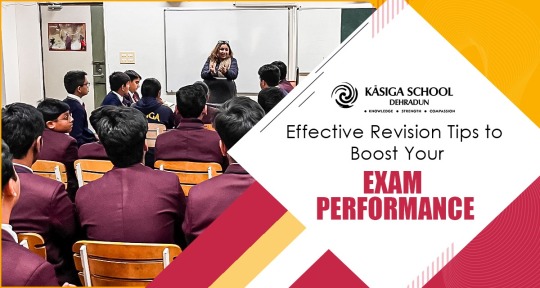#Revision tips
Text
"Instead of" Revision method
How does it work ?
You take the old story and swap it out with your preferred story.
Why does this work?
Keeps you from spiraling into the old, unwanted story
It essentially puts you on your preferred timeline, without having to do the mental gymnastics to resist your 3d.
you'll feel an instant shift in your energy and mindset
Example:
"instead of growing up low income, I grew up upper middle class"
"Instead of being shy, I was confident and outspoken"
" Instead of dating creeps, I only attracted gentle men"
"instead of scrolling on my phone, I went for a walk this morning"
"Instead of 180, the scale said 145 today "
"Instead of receiving junk mail, I received a $2,000 check today"
"Instead of being judged for my special interests, i was rewarded and celebrated for them "
"instead of annoying me, sp was really kind today"
" instead of struggling, i went with the flow today "
#manifesting#revision#neville goddard#self concept#scripting#law of assumption#reality shifting#reality revision#past revision#edward art#revision tips
43 notes
·
View notes
Text
maths study tip:
do a past paper worksheet for each individual maths topic in your course, if you get a question wrong screenshot it and then insert it onto a word document under the maths topic heading. after you have covered the course create a priority list of topics, the first topic should be the one with the most screenshotted questions. once you have corrected all areas you can move on to memorising necessary formulas and formal past paper practice.
#studyblr#studyspo#girl blog#girlblogger#spencer hastings#paris geller#study drive#maths#mathematics#exams 2024#coffee babe#study motivation#study advice#revision tips#revision#girlblogging#this is a girl blog#hermione granger#elle woods#legally blonde#study girl
10 notes
·
View notes
Text
Dear New Year 12s
As someone going into their- fingers crossed- final year of A levels, I feel like I’m in a good position to play the big sister role and offer some advice and support for any sixth form newbies as I really struggled in those first few months and want to help lighten the load for anyone I can.
Like I said, I really struggled those first few months. I spent the first two weeks of year 12 crying, fighting off anxiety attacks during lessons, and threatening to drop out, but my parents (one of which didn’t go to sixth form, the other one having returned to education after being expelled from college) told me to stick it out. And I did. I grew closer to who is now my best friend- that’s a little rude of me, I’m very lucky to say I have two beautiful best friends I love very much- and our friendship helped give me the confidence I needed to be a much more active part of my school’s community.
So, point one. Try to stick at it.
The first two weeks are going to be difficult, especially if, like me, you’re in a new school with maybe one or two of your old friends (or none at all). But once you’ve done those two weeks, you can make it to half term, and once you make it to half term, why not make it to Christmas, and now that you’ve made it to Christmas, you’re halfway there- why not finish the year?
Sixth form won’t be for everyone, and that’s ok. I’ve had friends drop out or change schools and there’s no shame in it. But for some people, taking it that day, week, month, term at a time will solve (almost) everything.
Just note, there’s no real way to “make new friends”. The best thing you can do is stay open minded and maybe try being an active member of your classes; I made most of my friends through the discussions and debates we had in lesson, then we carried on talking once the bell went! But for those of us who are more shy, my now best friend was the extrovert who picked me out of the soggy ‘free introverts’ box. Sometimes you just have to let these things happen, sometimes you have to throw yourself in at the deep end.
Once I made my first friend- I’ll call them Goblin for this post- I had someone to share this turbulent time with, to sit with at lunch, to hide behind when all this change was changing too quickly. One of the most important things we did together was taking part in the sixth form pantomime. Now I didn’t just have a friend, but a community of people I routinely met with to participate in something I loved and was passionate about.
Being a drama student, I was roped into one or two after school clubs, it did me a world of good and helped me come out of both my dramatic and social shell. It doesn’t have to be stage-ish, but if you’re having trouble meeting people or finding a place to call home, try out a few clubs- You’re much more likely to meet like minded people, plus you’ll be practically engaging with your interests.
As an anxious student, I find it very difficult to cope in classroom environments, let alone new classroom environments. But I have a few tricks up my sleeve to help me when it gets too much:
Sit as close to the exit as possible. In some cases, you might want to sit closer to your teacher so if you need to get out you’re not shouting it from across the room, but I like sitting next to doors as it makes me feel less trapped.
Take it five minuets at a time. You have an hour long lesson? That’s just five minuets twelve times; 30 minuets is 5 minuets six times, and so on.
When are your free periods? Technically you’re meant to use them to get work done, but I spent a lot of mine either at home or decompressing somewhere I felt safe and comfortable (AKA karaoke in the drama studio with Goblin). That essay can be finished in a few hours, but it takes much longer to heal yourself from burnout.
Let your teachers know. The worst thing you can do is suffer in silence and as awkward as you may feel doing it, you have to speak up for your needs. Your education is important and you won’t learn anything if you spend all lesson trying to remember what an inhale feels like.
To elaborate on point 4, this is how you do it. Firstly, email all your teachers- or ask your school’s counselor or head of student welfare to- and tell them how you may need a different kind of support in school and what they can do to help. Instead of wordlessly skipping the lesson, email your teacher or write them a note for a classmate to pass on. Tell them how you feel and ask if they can email you the work covered in lesson or any research or reading that needs doing so you can do it outside of class. If you’re not feeling well during a lesson, because of those handy dandy emails you sent out at the start of the year, just ask your teachers if you can finish your work in a separate room, or tell them you need a timeout. Alevels are SOO different from GCSE, you are a grown up now and your teachers should treat you like one.
If all else fails, ask to go to the loo and come back once the lesson is over/ visit the aforementioned counselor-type professional when you’re meant to be in the loo/ just tell the teacher you need to see the counselor-type person and they should let you go.
This is probably the most important point of all. Speak up and ask for help. This is one of the hardest stages of your academic year, you have to lose every ounce of pride you have and ask every stupid question you need answered, you need to force your teachers and school staff to give you what you need to succeed- politely, of course. Maybe you don’t have any close friends to open up to, maybe you can’t turn to your family or guardians in a time of need, but you're in school now, so you have teachers and a multitude of services at your disposal. I talked about school counsellors/ heads of welfare, they’re a great place to go and I’ve never known of a sixth form or college that doesn’t have at least one. Honestly, I’m the reason my school’s head of student welfare is being paid- or at least I was :p.
You can turn to these staff members for anything and they are literally paid to give you 100% of their available time and effort and trained to know what to do, no matter the circumstance.
As well as this, there are options such as online counselling and websites such as Kooth, and for situations that may be a little more dire, you can always call Childline at 08001111.
It may seem scary at first, but you have to think long term when it comes to seeking help, your future self will thank you for it.
Now onto the lighter stuff.
Organisation. Bloody organisation. Every student has what works best for them and every teacher thinks they know what’s best for their students. I was doing back bends for one teacher in particular and all I got out of it was more bother. You’re going to have teachers that just hate your guts for no reason. She’s mine.
This is my preferred method of organising work:
Notebooks: for taking notes in lesson
Folders: for the mountain of paper that’s going to get dumped onto you
Here’s how I like to organise my folders (remember, this doesn’t work for everyone, but this is what I find easiest):
Purple: the basic outline. Red: a real-life example (my Literature folder)
The Folder
for subject: English Lit
overarching topic
19th Centuary Literature
a section for homeworks
e.g. essays
a section titled ‘general’
where I’d keep wider reading/research, sheets providing info on the topic (not modules), etc
module within the topic
A Play, by Playwrite
module within the topic
Poetry, by Poet
And so on.
Instead for my drama lessons, I organise my work by information rather than topic, for example:
General (dramatic technique, lantern types, etc)
Homeworks
Live theatre analysis
Practitioners
Script work
Set text 1
So on.
For Year 13, I also have seperate folders exclusively for coursework.
For revision, I have three folders for each subject where all my revision resources are stored, which leads me onto my next point.
REVISE EVEN IF YOU DON'T HAVE AN UPCOMING EXAM. Once you learn a topic, it will not be returned to. Your teachers will expect you to know the content you have been taught- this is why it’s so important to ask questions and seek out support as soon as you need it.
My top tip: once you’ve finished a topic, make your revision resources immediately and start practising while it's in your head.
In my GCSE years, all I’d do to revise was go over some flash cards, rewrite some notes, saunter away with a scattering of 8s and a pat on the head. Sixth form humbled me, quickly. So here’s how I revise now.
Flashcards. They’re a classic and brilliant for practising active recall. They work for everything; equations to chapter summaries, keywords to historic figures.
You can’t go wrong with a bit of active recall, here’s a YouTube video I found especially helpful on making flashcards: https://youtu.be/6HXJrfddvIE
Origami posters. Don’t worry, it’s not actual origami. This method is much better for reframing notes than recall, but it’s no less important.
Take an A4/3 piece of paper and write everything on a mini topic on one side (e.g. Hamlet, Act 1)
Fold it in half, condense the full page of notes into a spider diagram, or similar
Fold it in half again, now you have a booklet. On the back, write out all the keywords for the mini topic, on the front write the title (e.g. Hamlet Act 1)
Knowledge flowchart. This is another means of organising notes. The best way to explain this one is probably to show you the end product, but I’ll try my best to explain it too.
Take a plain piece of paper and write your topic title at the top.
Draw an arrow from the topic and write down the core of that topic- for example, for ‘Theravada Buddhism’, I’d start with the Three Marks of Existence. Then, elaborate on that, and elaborate again, and (especially if you’re making notes on Buddhism) you will soon find you’ve explained everything by explaining one thing in detail.
Here’s one I made earlier:
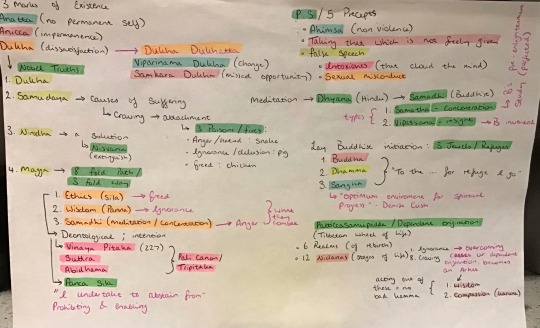
Blurting. Blurting is a great way to see how much you’ve absorbed from your flashcards, posters, etc. Put a timer on, take a blank sheet of paper and write down everything you could possibly remember on your topic of choice. Once the timer is up, use your notes and write down points you missed/ got wrong in a different colour- these are the things you now need to work on more closely.
Here’s a helpful video on blurting: https://youtu.be/CgrCo1J9A44
Some additional revision tips:
Make a timetable
Maybe you have after school clubs, maybe you just need some down time, my top tip for any form of time management is to write down what you’re doing when. For example, I go back to my dad’s on a Monday, so I usually get home a little later, I’m usually a bit tired, so I plan ahead of time so I can take it easy on a Monday- maybe do 30 minutes on one topic and get some homework out of the way. Some Mondays I was tired, so I’d go over one topic of flashcards (something is better than nothing). On Wednesdays however, I had a lot more time after school, so I might do two subjects in an hour, an hour on homework, and finish off the evening going over my lines for an upcoming performance.
Planning ahead of time is great as it limits decision paralysis and therefore procrastination, meaning you can fit in all your leisure activities on top of assignments and revision.
It is important, however, to make sure you’re not overworking yourself, if the information isn’t going in, nothing will come out. Best way to avoid this would be the Pomodoro Technique, which I’ll leave a video link to here: https://youtu.be/mNBmG24djoY
Create a good study environment
No matter what the aesthetic student vloggers may imply with their cinematic shots of perfectly calligraphied notes and lemon water, low lighting such as lamps or candle light (vampire wannabes) will make you feel sleepy and you. will. not. learn.
The best revision environment in my opinion would be:
A clear desk or table (even if you dump everything onto your bed, as long as your work space is clear, so is your head)
A chair you can sit comfortably in
A well lit room of about the right temperature (smother yourself in hoodies if you must, or the opposite)
Water, or similarly boring drink, to hand
Things that meet your sensory needs (music, stim toys, blue tack)
A note on this: I cannot function without background noise, so I listen to lofi music while doing school work, but I only listen to it while doing school work. This means I associate lofi music with productivity, so it puts me in the right mindset. I wouldn’t recommend listening to anything with lyrics however as this may muddle your thoughts.
Here is a link to a playlist of classical music I’m especially fond of: https://youtu.be/idJoHeHPrXA
And some background noise too: https://youtu.be/DLqkt4F0anA
Make sure everything you need is within reach, having to get up and down for stationary and textbooks is going to break your flow (I also recommend going to the loo before revising for this very reason)
To finish off the section, here are some videos I’ve found helpful for revision tips:
ASAPscience study tips https://youtu.be/p60rN9JEapg
Essay writing https://youtu.be/liyFKUFCQno
Making the most of your textbooks https://youtu.be/nqYmmZKY4sA
Active recall techniques https://youtu.be/1b9YRuifyYw
What study style suits you? https://youtu.be/cErgMJSgpv0
As well as textbooks and what you cover in class, there’s loads of helpful online resources too, don’t be afraid to check them out- and don’t be afraid to check your sources either.
Some general tips:
If your teacher gives you feedback, eat it up, absorb it like a sponge.
Do your homework/ assignments/ catch-up work/ whatever as sooon as you possibly can (as soon as it’s set is preferable). You do NOT want work to pile up.
Try to find a routine.
Use Year 12 as an opportunity to find what works best for you, apply it as soon as you figure it out.
If in doubt, jeans and a tshirt/jumper won’t get you dress coded (in most cases).
All this being said, the best thing you can do to maximise your time is to find what works for you, stick with it, and ask for help. You’re going to find this tricky, but that means you’re doing it right. Don’t be afraid of being wrong, in lessons and in life.
Obviously I’m no expert, but I wanted to share my experience, tips, and tricks with you so hopefully you’re given a head start and don’t feel as rubbish as I did in the beginning. Sixth form is now my happy place, and I hope it becomes a sanctuary for you too.
Like I said, I’m no professional, but if any of you need a big sister, I have left my messages open.
I wish you the best in your first year of A levels <3
#year 12#sixth form#student life#student#academia#a level exams#a levels#a level support#study blog#studyinspo#revision tips#sixth form college#revision#how to revise#surviving year 12#sixth form survival guide#dark academia#chaotic academia#romanticising school
74 notes
·
View notes
Text
Just saying if the general way of studying a subject doesn't work for you then that's completely fine and you should do it in the way that works for you
Cause when I'm struggling with my maths work the last thing I wanna do and the last thing that will be helpful is doing practice questions. Questions for me are for when I fully understand the concept, whereas most of my teachers say if I don't understand something then I need to do more questions.
Instead, for me if I'm struggling it's usury cause of the way it was taught, and so if I can't get it conceptually I go and find other explanations. This usually means finding a video walking through a proof of the topic.
I think this is cause memorisation for me doesn't work, even at gcse all the memorisation elements of a subject I did 5 minutes before the exam and wrote everything I could remember down the second the time started.
This means that just memorising methods really doesn't help, cause I'll probably just forget them. Instead, what I need to do is understand the logic behind it so worst comes to worst I can use that logic to work through a problem. See: me solving multiple speed questions correctly in year 9 in a test where I forgot the formula for speed. My teacher was confused but gave me the marks cause there weren't any flaws in my working
Tldr: if the standard method of revising a subject doesn't work for you, figure out why then find a solution that fixes that why
#adhd student#adhd study tips#a levels#a levels 2022#a level maths#revision#studyblr#a level revision#adhd revision tips#revision tips#in general cause i dont think this is specific to adhd#tho its probably momore common cause brain wired differently#study tips#maths#school#orion rambles
5 notes
·
View notes
Text
The Importance of Beta Readers: Getting Feedback for Improvement
Writing is often a solitary endeavor. As authors, we pour our hearts and souls into our work, crafting stories that we hope will resonate with readers. However, there comes a point in the creative process where a fresh set of eyes and a different perspective are invaluable. This is where beta readers come in. In this exploration of the importance of beta readers, we will guide writers on how to…
View On WordPress
#Author Community#Author Feedback#Author Tips#Beta Readers#Collaborative Writing#Feedback Process#Manuscript Feedback#Manuscript Review#Reader Feedback#Reader Perspective#Revision Tips#Self-Editing#Writing Community#Writing Guidance#Writing Help#Writing Improvement#Writing Partners#Writing Revision#Writing Support
0 notes
Text
if you are a student of any kind, you should definitely watch this:
youtube
i just did, and it will completely change the way i study :)
#study techniques#studystudystudy#studyspo#studying#study studying studygram studyblr studyabroad studyhard studyspo studymotivation studytime studyinspiration studyinspo studyaccount studyblo#studyblr#study notes#studyinspo#revision#revision tips#Youtube
1 note
·
View note
Text
🎀🧋MENTAL DIET🎀🧋

🎀" A change of speech is a change of mind " - Neville Goddard. Everyone indulges in self- talk,we can control the nature & direction of our inner conversations. Our inner conversations are the causes of the circumstances of our life. To change your mind , you must change your speech aka your inner conversations. Inner world creates the outer world.
🧋Mental diet is like a normal diet , the only difference is that instead of avoiding unhealthy food , we avoid unproductive thoughts aka thoughts which contradict our desires . We choose to think productive & healthy thoughts. Believe it or not , our thoughts create our reality.
🎀Master your mind to focus on what you want & persisting in the desired story. If you are focusing on what you don't want or if your mind keeps going back to the old story, then it's very important to maintain a strong mental diet. Our brain is used to wandering or be in auto pilot mode. We need to create a new pattern where we only focus on what we want. To create a new pattern , we need to put consistent attention and put mental effort to focus on what we want. The more effort we put to focus on what we want , the more we will train our mind. Gradually , the new pattern will become habitual. Choose to be a conscious creator and be consistent.
🧋Think from a perspective of a person who already has everything they want and keep persisting. Persist until it becomes your reality. You have control over your thoughts , you have the power to choose what you think about.
🎀In one of Kim Velez's videos , she said that said Mental diet is King and she is right. The more you think something , the more you believe it. Mental diet is so beneficial when you need to reprogram your mind or upgrade your self concept , or manifest your desires. In general , mental diet is very helpful.
🧋Sammy Ingram also said that Mental diet is forever because our thoughts are forever creating. We need to be on Mental diet to replace our limited or negative beliefs. When you let those negative thoughts settle , you are holding the undesired reality in place. To change things , we affirm the opposite , we focus on what we want.
🎀"It is the food which you furnish to your mind that determines the whole character of your life. It is the thoughts you allow yourself to think , the subjects that you allow your mind to dwell upon , which makes you and your surroundings what they are " - Emmet Fox.
🧋Incase, all this sounds very confusing to you , let me simplify it for you. You don't need to do anything but just focus on what you want . Think thoughts from a perspective where you have your desires. If you have your desires , you won't whine about not having them , right ? Keep persisting in your desired reality. If you get thoughts which contradict your desires , just take a deep breathe and know that they don't matter. Those thoughts don't matter so don't pay attention to them.
🎀Also , I feel this chart will be helpful, it was in solar's creator code guide too.
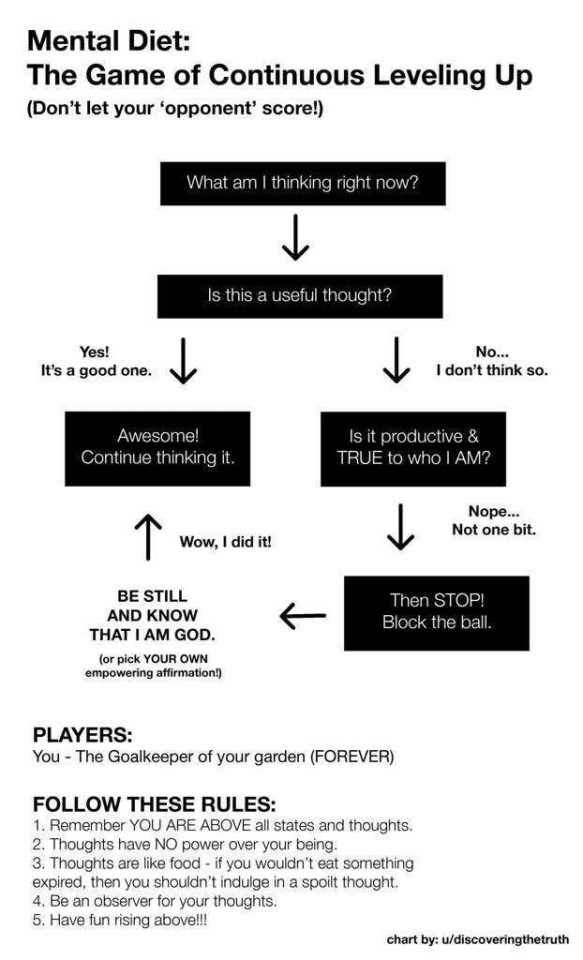
This chart explains how to do mental diet in a very simple way.
🧋Also never forget , YOUR THOUGHTS CREATE ! 🎀🧋

#self concept#affirmations#law of assumption#neville goddard#loa#it girl#master manifestor#self concept affirmations#affirm and persist#assume and persist#mental diet#affirm#loa tumblr#persistence#persisting#thoughts create#how to manifest#manifesting tips#3d#revision#manifestation advice#kim velez#emmet fox#sammy ingram#wonyoungism#wonyoung motivation#aesthetic#beauty#eipyo#subliminals
177 notes
·
View notes
Note
I have a writing issue I am trying to get out of, but I also don't know how to get out of it. I have a tendency to have characters look at one another, gaze, glance, peer, stare, get lost in, etc - so much action with the eyes. I want to be able to describe communication and feelings between characters outside of *the eyes* (that isn't touching), do you have any tips/exercises that can help with this?
So I waited a super long time to reply to this, and you may already have figured out a solution on your own or found an answer elsewhere. I apologize for saying I would answer and then lo and behold I did not. I did however find a piece on the site Happy Writer that addresses this exact issue! Read their advice, it's meticulous and practical.
How to Make Your Characters Stop Looking At Everything
Personally, when I've encountered this crutch in my own writing, I switch my focus to some other sense. Whether its actions the character is doing with their hands, sounds they are distracted by, a interesting patterns in the wallpaper, whatever. As long as it isn't eyes every time it makes those moments fresh again.
I've noticed in most day-to-day conversations I don't make much eye contact with familiar people. We can speak without looking at each other, especially when occupied by other activities such as chores or driving. With strangers of course there is more nodding and polite eye contact, but with friends and coworkers they understand if I'm not looking at them I can still pay attention to their speech.
Likewise, if you save the heavy eye contact for specific scenes—like romantic, hostile, or suspenseful encounters—it will be more impactful! It will be exciting to write "they stared into each other's eyes" again! I'm teasing, but also I've been there and I understand all too well.
---
+ If you enjoy my blog and appreciate my advice, consider visiting my ko-fi and Buy Me A Coffee!🤗
+ Follow me on AO3 - Pinterest - Unsplash for my fanfiction and photo inspiration.
#writing#writers on tumblr#writing tips#writing advice#writeblr#creative writing#descriptive writing#edit revise redraft#writer problems#answer
196 notes
·
View notes
Text
How to be unforgettable


1. wear a unique and memorable scent, to make the scent last longer you can use a moisturiser with the same scent.
2. be nice and gentle towards others, remember what goes around comes around
3. be quiet and mysterious.
4. have a close friend group instead of many friends.
5. always smile towards others.
6. learn subtle confident body language, like sitting up, head up, and smiling.
7. take care of your skin every day. DONT SLEEP IN MAKEUP 😭😭
8. study and read every day
9. take care of your body etc. workout,meditation,yoga
10. eat healthy.
11. be yourself!!
#lana del rey#clean girl#pilates princess#revision#studying aesthetic#it girl#college aesthetic#the wizard liz#manifestationmindset#unforgettable#be unique#change yourself#girl interupted syndrome#girl interrupted#girlblogging#glow up#looksmaxxing#beauty#beauty tips#kpop#hyuna#Spotify
204 notes
·
View notes
Text
10 steps to revise for an exam (and my recommended timeline)
Quickly go over the material that will be covered on the exam. Put each topic into a category of "Good" "Okay" and "Bad" based on your understanding of that topic. (Day 0 - Before revising)
Look at steps 3-10 and put them into a study plan that you can follow. This will keep you on track and ensure you cover everything. (Day 0 - Before revising)
First, start with your "Okay" list. Briefly revise each topic, focusing on definitions, formulas, and general concepts. At this point, you should be ensuring that you know the information, not focusing on exam practice. I like using flashcards for this step to ensure I actually know the information (Day 1)
Now, do the same for your "Good" list. (Day 1 or 2)
Once you've done steps 2 and 3, you're ready to practice! If your professor has given you practice/review questions, use those. You can also find great questions in your textbook or from past assignments. (Day 2)
Now, focus on your "Bad" category. Do a much more thorough review of the information in this category, almost as if you're learning it for the first time. This is a step where flashcards may be super helpful, especially if you need to power through a lot of memorization work (Day 3).
This is where you practice your "Bad" category. Make sure to do multiple questions for each topic to ensure that you're prepared for anything that comes your way (Day 4).
Revisit all the information you've studied over this process, and do more practice problems on the topics you're struggling with the most. (Day 5)
Take a deep breath, get some sleep, and eat a good meal! (Exam day!)
Take your exam!
#studying#studyblr#study tips#study#exam#test#exam revision#exam review#college#university#studyspo#student#study motivation
998 notes
·
View notes
Text
CREATING + USING FLASHCARDS

CREATING
You can either use index cards, online cards or cut out paper, whatever is more convenient.
Organise resources and notes before beginning to write anything on your flash cards. Only use key concise information.
Keep the content on your flash cards short. Don’t use flash cards for more detailed information. You want to make sure it is easily memorable.
When writing your flash cards, use different coloured pencils to write or highlight some words to make it more memorable.
Put one term/question on each card to better retain more information.
Add pictures/diagrams. I know not all of us are artists, but they are quite useful to memorise the information, as our brains associate visuals with information.
Keep your flash cards limited. If need be, you can create two sets of decks to use in different periods, but try keeping one deck under 20-25 cards.
USING
Repetition is important when using flash cards. Try to find little intervals in your day to use them. Early morning or just before you go to bed are some of the best times to revise them!
Recite your flashcards out loud instead of in your head, you process the information with more clarity.
Keep distractions minimally. You don’t need to have complete silence, but avoid music, doing it in your bed or eating while revising.
Engage yourself with the flashcards, you can reward yourself after getting a short chunk memorised, or walk around while using them.
#hot girl semester#hot and educated#pretty and smart#beauty and brains#study#study blog#studying#studyblr#pink study#study tips#flashcards#revising#tests#dream girl#being smart makes u prettier#smart girls#intelligent#pink academia#pink academic#pink studyblr#aesthetic studying#productivity#productivity aesthetic#productive#productivitytips#being productive
133 notes
·
View notes
Text
♡ My revision tips ♡
Hi everyone! I've got my first A-level exams in the next couple weeks, so I've been focusing on revision and I wanted to share some of my revision tips! I used to find exams very stressful but I have some ways to make exam season a bit easier so I hope this can help •ᴗ•.
1. Create a good study environment
When you start a study session try to create a calm and focused environment. Try find a a quiet place where you will not be disturbed, if this is hard to find try using noise cancelling headphones. Make sure everything you need to study is within reach. I also like to light a candle to feel relaxed and I have a blanket to stay cosy! Creating a good environment can help you get in the mood to work and focus.


2. Plan your time effectively
Find a way to plan every topic you need to cover before your exam. Some people find revision timetables useful for this. I like to create a revision list based on my confidence levels with each topic and work my way through the list going from least confident to most confident. I will usually focus on one or two topics a day depending on how close I am to the exam. I will also write a few goals for the revision session in my Notion which helps me to stay on track.

Another tip to plan time effectively is to plan the how long you would like to revise each day. Don't feel pressured to work for hours straight! I know it is easy to compare yourself to others but find a balance that works for you. The goal is to work smarter not harder and revising for long periods of time can be damaging. As an A-level student I try to revise in one hour sessions with 15 minute breaks and I try and do 4 hours of work. I have found this is enough time to get what I want done without feeling burnt out. Remember it's a personal choice and you need to take care of yourself.
3. Use cute stationery!
I personally love cute stationary! I find it really helps me to keep motivated and excited to revise. It doesn't need to be expensive, just find some stationery that motivates you. Some of my current favourites are the Stabilo swing cool pastel highlighters and my Sumikko Gurashi mechanical pencil.
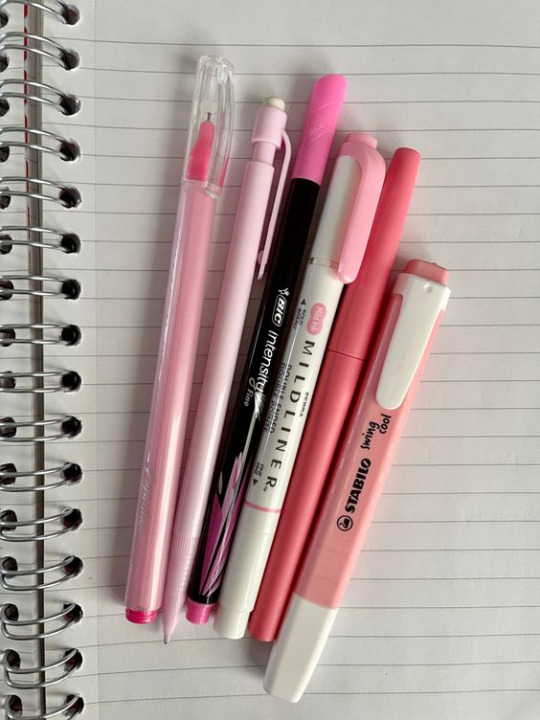

4. Try to avoid just taking notes
While note taking is effective in class and when first learning the content, I have found it less useful when it comes to revision. Re-reading notes or textbooks can be helpful to jog your memory but it can be boring after a while. One of the best ways to revise is through active recall. Active Recall is all about retrieving information to make it easier for your brain to make connections between things. This can be done by using revision cards to test your knowledge, or on websites such as Seneca or Quizlet that help you to learn content, then test you on it.
5. Treat yourself
Revising is difficult at times and it can be tiring. Be sure to look after yourself and treat yourself with kindness. If you are having a tough day it's okay to leave revision for that day. It is better to rest than push yourself too far. I like to treat myself by having self care baths, taking time for my hobbies like gaming and reading and by spending time with friends and family.
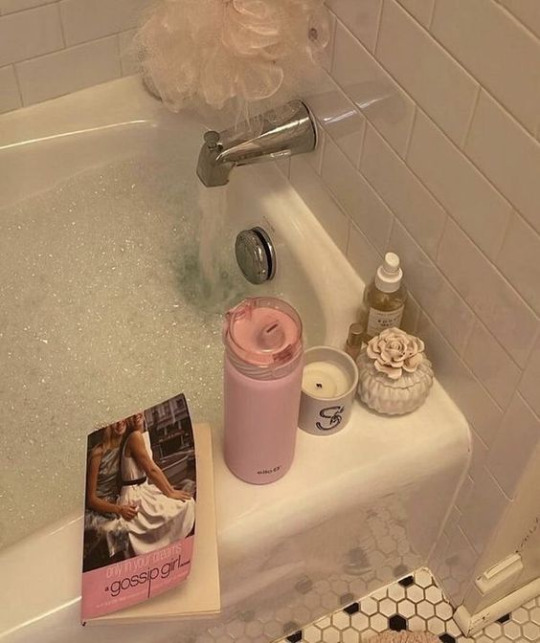

I hope these tips are helpful to someone and make revision a bit easier. Good luck to everyone taking exams, I believe in you! ♡
Love, Evelyn x
#study blog#study tips#study inspiration#a level revision#gcse help#self care#pink blog#coqeutte#coquette#romantisize study#rosy blog#girlblogging
279 notes
·
View notes
Text
Never worry about how many times you need to rewrite before your writing is good. While it's best to avoid getting carried away with perfecting your work, it's just a reality that it takes lots of rewriting to get good. Not necessarily perfect, but good.
As Ernest Hemingway famously said, "I rewrote the ending of 'Farewell to Arms' 39 times before I was satisfied."
#writing#writers#writeblr#writers on tumblr#creative writing#writing advice#writing tips#on writing#advice for authors#exposition#am writing#am editing#revision#writing tips and tricks#writing tip#author advice#author quote#author quotes#rewrite#first draft#rough draft#writers life#writing life#writer life
20 notes
·
View notes
Text
Note taking sucks give me writing down questions about the lecture material instead.
Note taking? Boring. Hard to review. Hard to get everything down.
Writing questions where the answer is the lecture content? Also kinda boring tbh. But easy to review. Easier to get things down cause shorthand. Google can plug gaps.
3 notes
·
View notes
Text
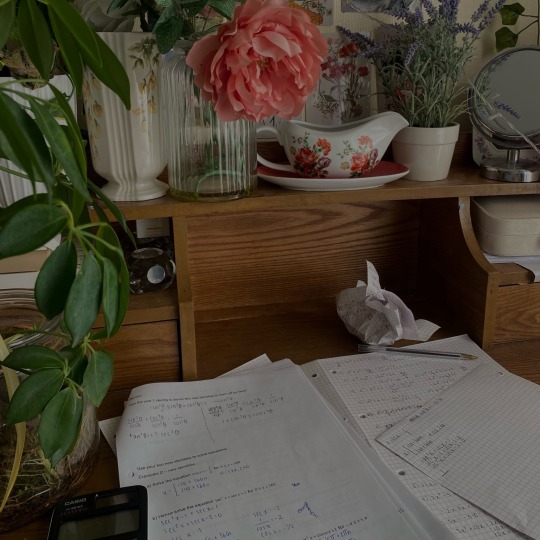

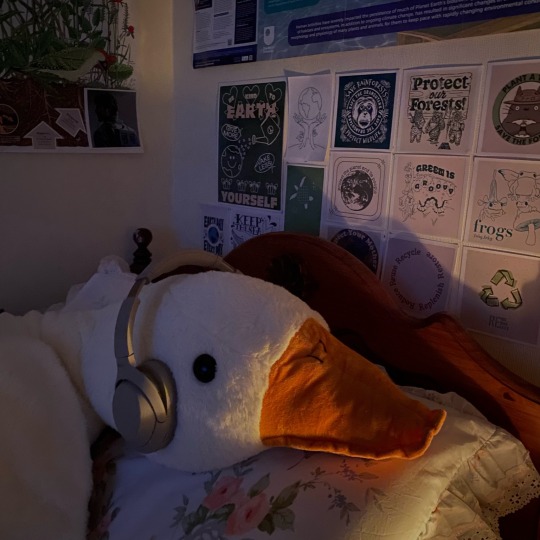

sat, 11 nov
today was an okay day. to be honest i didn’t get a lot done but i ticked two of my three todos. i was going out later on so i was in that mindset of not being able to do anything all day bc i was mentally preparing to go out. anyways, went out on a lash, i’m typing this hungover. so probably won’t do anything on sunday. also i forgot to add last post that my maths test went okay and i’ll get the score on monday yipee. next week i’m gonna go the library i think. also ignore my dirty ass calculator and look at my emotional support goose kenny instead, who’s not much help with trig, but he tries.
only 40 mins on forest timer?? (shameful) ᴖ̈
to do list
☘︎ maths hw
☘︎ revise trig
☘︎ biology fish fcds
♪ of the day | the alcott — the national
#studyblr#math#study motivation#studyinspo#study#studyspo#a levels#study aesthetic#study blog#academic validation#academic weapon#study notes#study tips#revision#a level maths#motivation
32 notes
·
View notes
